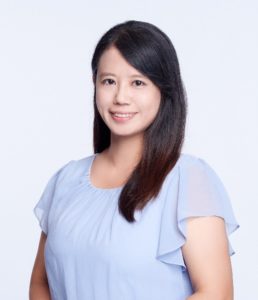 |
Yi-Hsuan Lai grew up in Taiwan and obtained her BSc in Chemical Engineering from National Cheng Kung University (NCKU) in 2007 and her MSc in Chemical Engineering from National Taiwan University in 2009. In 2011 she moved to the UK to pursue her PhD in solar water splitting in the Department of Chemistry at the University of Cambridge under the supervision of Professor Erwin Reisner. After receiving her PhD in 2015, she moved back to Taiwan and started her independent career in 2016 as an Assistant Professor at National Sun Yat-sen University. Since 2019, she has been an Assistant Professor at NCKU in the Materials Science and Engineering Department.
Her research interests include photoelectrochemistry, electrocatalysis, and sustainability. Her research group currently focuses on synthesising effective and robust materials and selective catalysts based on Earth-abundant elements for artificial photosynthesis and (photo)electrochemical organic waste valorisation. Find out more about Yi-Hsuan’s research on her webpage |
Read Yi-Hsuan Lai’s Emerging Investigator Series article, ‘Selective production of formate over a CuO electrocatalyst by electrochemical and photoelectrochemical biomass valorisation‘, DOI: 10.1039/D2CY00950A
1. How do you feel about Catalysis Science & Technology as a place to publish research on this topic?
Catalysis Science & Technology is a renowned journal with high standards in the field of catalysis. I am, therefore, very grateful to have the chance to engage in the Emerging Investigator Series of Catalysis Science & Technology.
2. What aspect of your work are you most excited about at the moment and what do you find most challenging about your research?
Discovering a selective catalyst made of only earth-abundant elements for (photo)electrochemically organic waste valorisation and uncovering the corresponding mechanisms are the most exciting aspects of our work. We currently make more efforts on the rational design of earth-abundant electrocatalysts for achieving higher catalytic activity and stability.
3. Can you share one piece of career-related advice or wisdom with other early career scientists?
Stay true to yourself and enjoy science despite obstacles and challenges.










